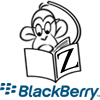WireOver - Fast, Free, Secure File Sending
Transfers (by subscribers) use perfect forward secrecy, and can be entirely asynchronous, so sender and receiver need never be online at the same time. Of course if they are, then transmission goes as fast as the physical network allows.
We built the backend and client mainly in Python, supporting Mac and Windows back to 10.5 and XP respectively. For Linux we support 32 and 64 bit Ubuntu 12 and later.
Much of my focus has been on keeping OS variations from impacting the main body of the code. To that end, we're using wxWidgets to abstract the GUI, and I've implemented such native code as needed to interface with unwrapped aspects of the OS and third-party libraries. In some cases the fluent Python bindings to OS facilities just aren't fast enough, and native code is used there also.


